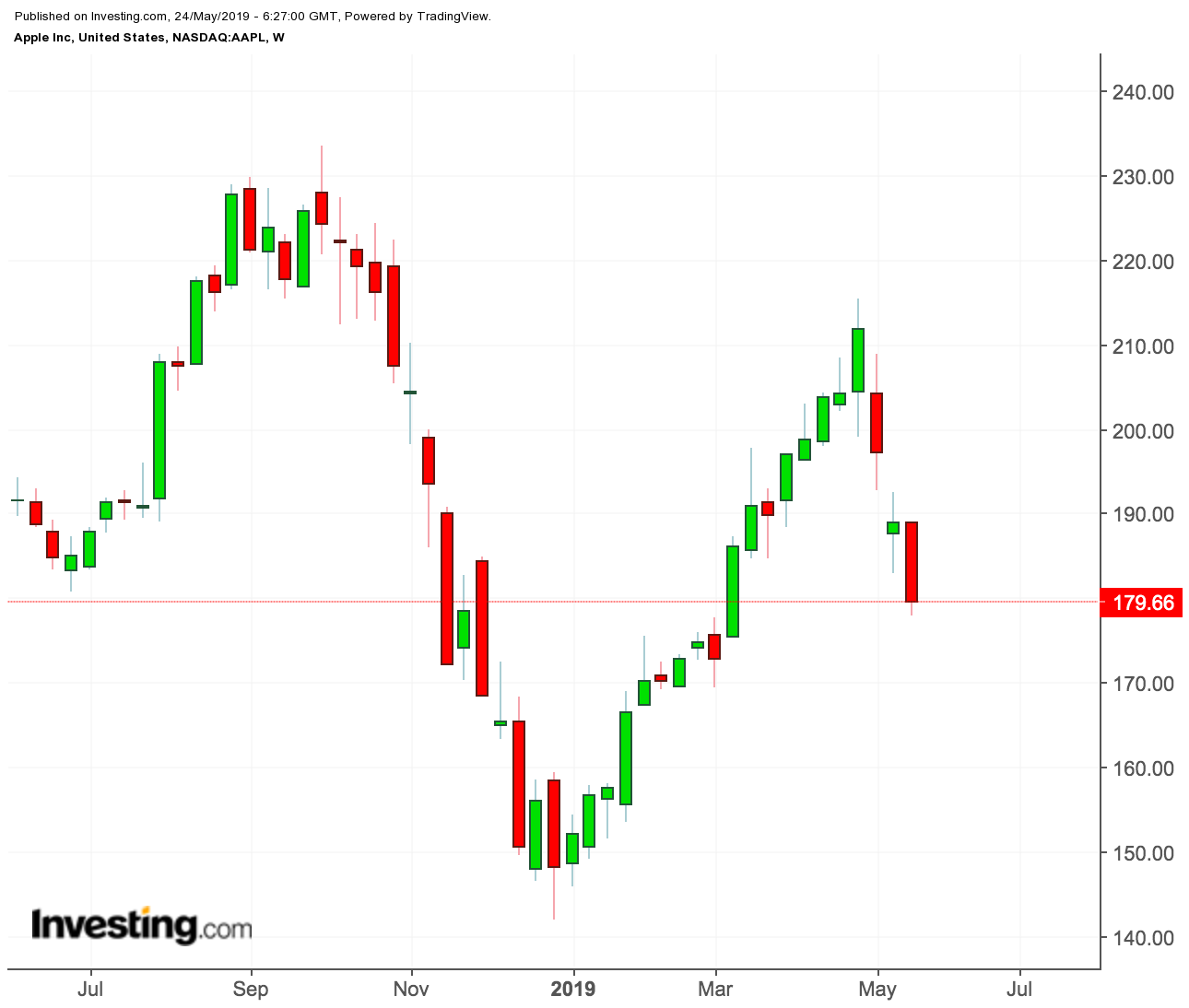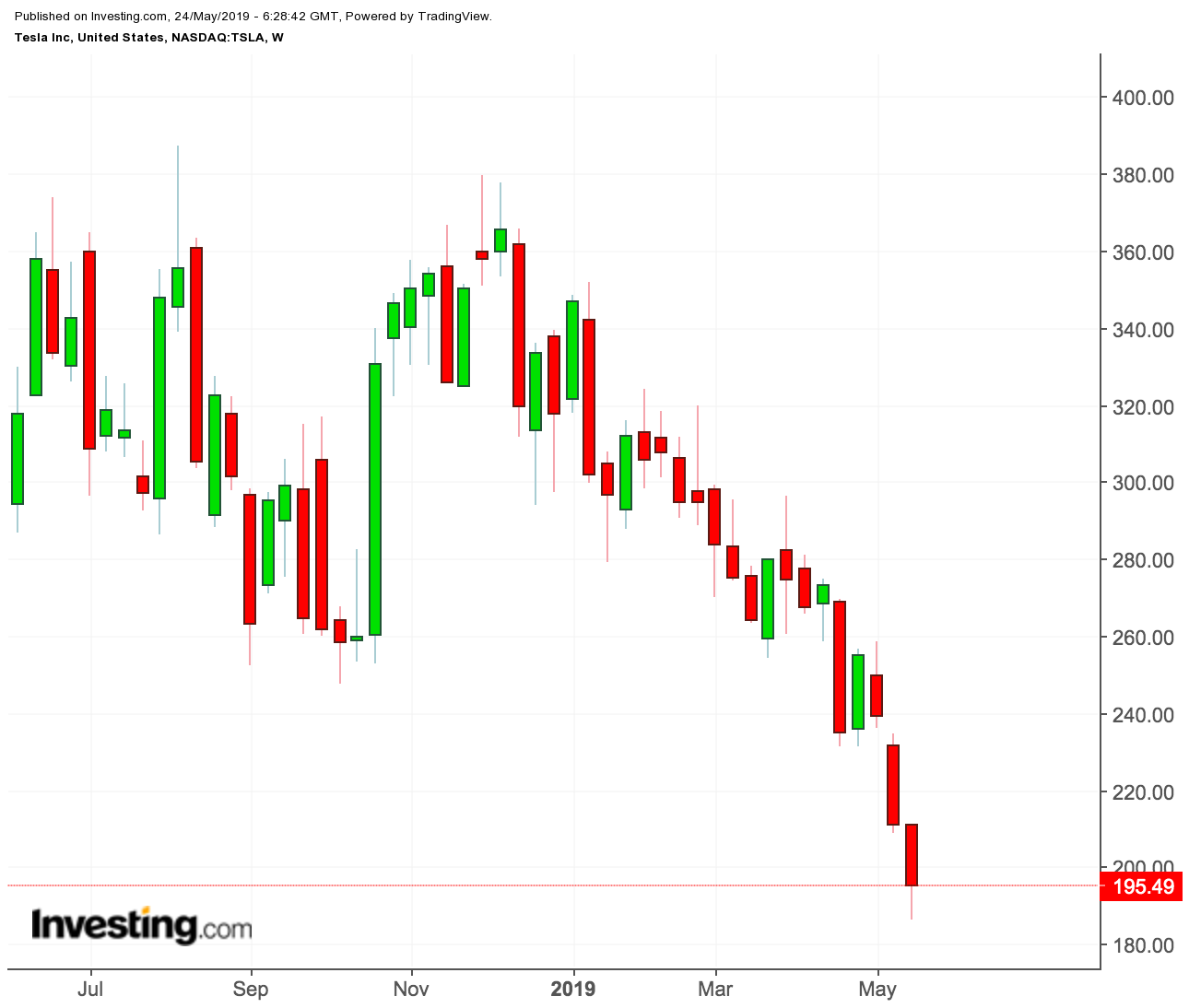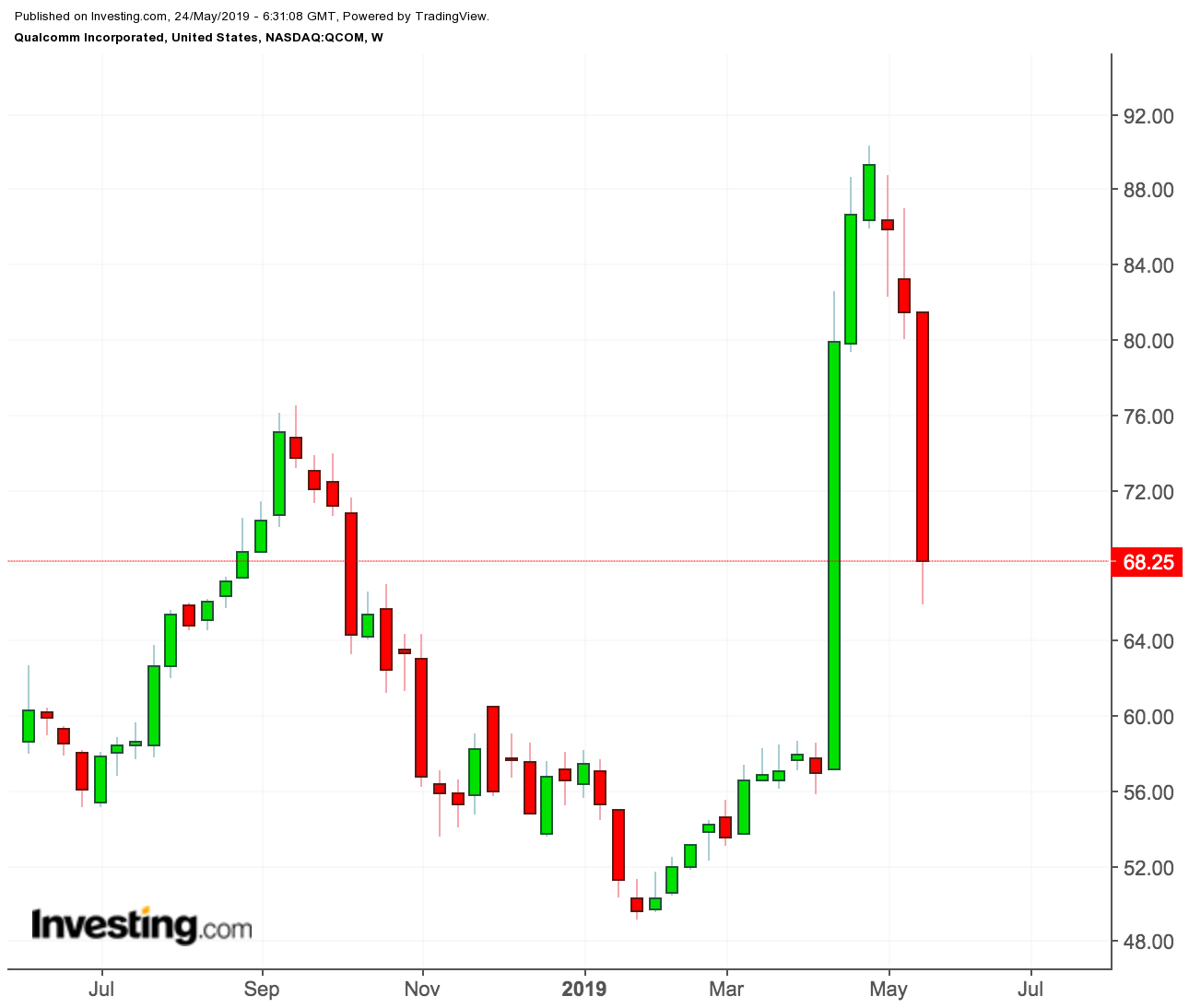Though many analysts are still debating the full impact of the intensifying trade war between the U.S. and China, this dispute is already taking its toll on some of the largest technology companies in the U.S.
And with both sides hardening their positions with each passing day, the chances of a near-term resolution of this dispute between the world’s two biggest economies are fading quickly. If this uncertain environment persists, or takes an uglier turn, investors should be ready to adjust their portfolios and trim risky assets. Here are three large technology stocks whose fate is closely tied with China:
1. Apple
The make of iPhone, Apple Inc. (NASDAQ:), has a huge stake in this fight and the performance of its shares over the past month reflects that threat. Its stock has, so far, fallen about 13% since U.S. President Donald Trump announced to increase tariffs on Chinese imports to 25% from 10%, prompting China to retaliate. The shares closed down 1.7% yesterday, at $179.66.

Apple weekly chart
China is Apple’s third largest market, bringing in nearly $52 billion in sales in the company’s most recent fiscal year. Worries over the trade war impact on Apple intensified after the U.S. blacklisted Huawei Technologies Co. last week, raising fears that China will again retaliate by targeting Apple and its supply chain.
China's Commerce Ministry said yesterday that U.S. actions have increased the risk of a trade war, as well as a global economic recession, and cautioned that Beijing will take any steps necessary to protect the interest of Chinese firms.
Presenting a worst-case scenario, Goldman Sachs warned investors yesterday that Apple’s earnings would take a 29% hit if China were to retaliate against the U.S. with a ban on sales of the iPhone maker’s products.
That scenario, in our view, is highly unlikely given Apple’s huge investment in China and its impact on the local economy. But Apple stock will certainly see more weakness if this dispute lingers. Investors should wait for a better entry point to buy Apple stock, which is a good investment for the buy-and-hold investors.
That moment may come in June when President Trump and Chinese leader Xi Jinping are expected to meet at the G20 economic summit in Japan.
2. Tesla
Though the electric carmaker, Tesla Inc. (NASDAQ:), has been an extremely risky play for the past several months, Wall Street analysts have become more bearish about its future since the trade rivalry between the U.S. and China intensified.
Morgan Stanley analyst Adam Jonas said in a note this week that Tesla stock, which closed yesterday at $195.49, could plunge to as low as $10 in a worst-case scenario. The trade dispute has increased risk for Tesla’s demand forecasts from China, from which the company is hoping to generate around $9 billion in revenues between 2020 and 2024.

Tesla weekly chart
But that target will be too ambitious if Beijing retaliates with reprisal tariffs or restrictions. Such a measure could slice Tesla’s sales from China in half and carve off more than $16.4 billion in market value, according to Jonas' estimates.
Reacting to these negative comments, investors have been dumping Tesla shares, which have lost more than quarter of their value in the past month. Irrespective of China risk, Tesla is a highly speculative stock, given the weakening demand for its Model 3, and the company’s precarious level of cash. Global trade risks have helped to highlight those vulnerabilities, in our view.
3. Qualcomm
Companies that produce chips for smartphones, gaming products, and data-centres are the most highly-exposed to China risk. The U.S. produced about half of the $470 billion worth of chips sold globally last year, and China was the biggest market.
That’s why the entire semiconductor sector has been suffering since the escalation in trade hostilities. One company that’s likely to suffer the most is Qualcomm Inc. (NASDAQ:). The San Diego-based chipmaker got two-third of its sales from China in its most recent fiscal year.
Qualcomm mostly designs its chips in the U.S., but gets them manufactured through its web of subcontractors in Taiwan, Korea and China. These chips then find their way back to China, where they are installed into electronic gadgets, such as smartphones.

Qualcomm weekly
Trading at $64.40, QCOM stock has lost about 20% of its value in the past month. Most of the damage to the stock came on Wednesday after a U.S. district judge agreed with the Federal Trade Commission in a case accusing the company of anti-competitive practices. That, combined with the company’s China exposure, makes its stock extremely vulnerable to further downside.
https://www.investing.com/analysis/3-tech-stocks-to-avoid-if-uschina-trade-war-intensifies-200424635
2019-05-24 06:33:00Z
52780302488621
Tidak ada komentar:
Posting Komentar